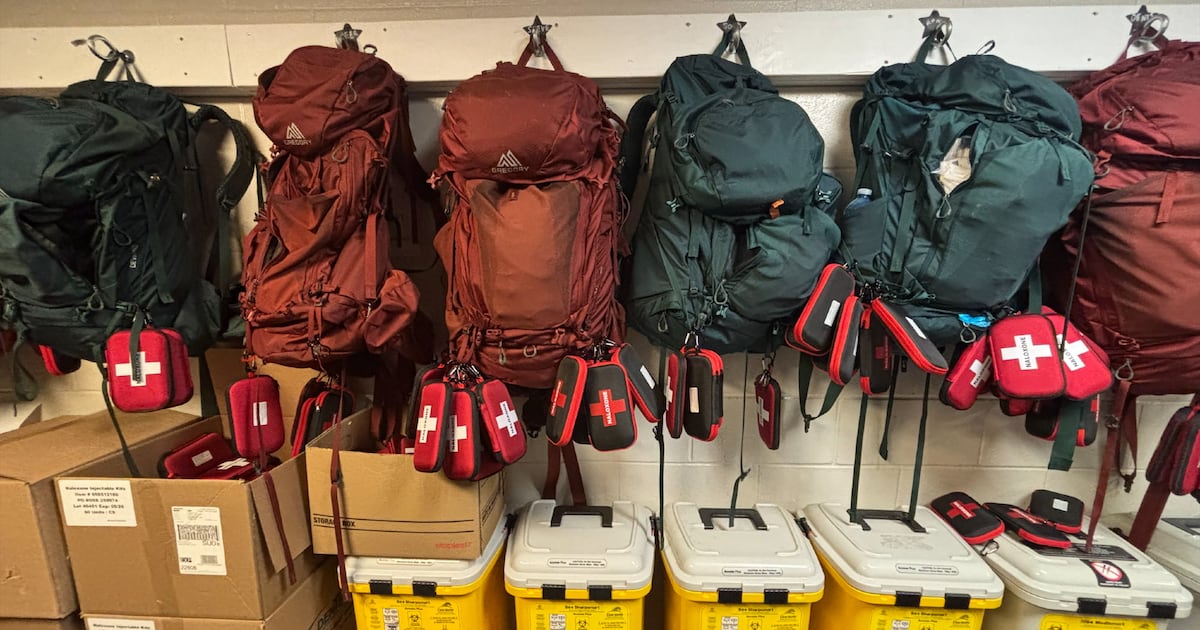Top Stories
Urgent Update: Northern Ontario Sees 605 Drug Deaths This Year

URGENT UPDATE: New data reveals a staggering 605 suspected drug-related deaths in Ontario from May to July 2025, underscoring the persistent opioid crisis. Despite a slight provincial dip in numbers, health advocates in northern Ontario are sounding the alarm, emphasizing that these statistics mask an ongoing community tragedy.
Local health officials have reported a marginal decrease in overdose deaths compared to last year, but the overall situation remains dire. In northern Ontario, particularly in regions like Thunder Bay and Sudbury, the opioid epidemic continues to wreak havoc. Sam Mortimer, a public health nurse with Public Health Sudbury & Districts, confirmed the figures, stating, “The decrease is marginal and not a huge difference,” following a recent coroner’s report.
The Ontario Drug Policy Research Network indicates that while the province has seen some improvement, the raw data represents a profound human cost. Health units in northern Ontario report significantly higher rates of opioid toxicity-related deaths, with 75 suspected opioid overdose deaths occurring in Sudbury alone over the past seven months. This alarming trend raises urgent concerns among community advocates, who stress the need for immediate action and awareness.
Kaela Pelland, manager of engagement at Réseau Access Network, highlighted the geographic disparities, stating, “We’re still in the third quarter of the year and there are 75 suspected opioid overdose deaths… that is absolutely tragic.” She urged the community to adopt a compassionate perspective toward those affected by substance use, emphasizing the importance of humanizing individuals struggling with addiction.
The complexity of the crisis is compounded by northern Ontario’s rural geography, which presents significant barriers to accessing essential services. Mortimer elaborated, noting that factors like industrial job risks and the prevalence of trauma contribute to higher substance use rates in the region. “Geographical isolation and lack of access to supports are critical issues,” she explained.
In response to this ongoing emergency, local organizations are ramping up efforts to equip community members with vital skills to combat the opioid crisis. Pelland advocates for widespread naloxone training, stating, “The best thing folks can do is be trained on how to use naloxone and overdose recognition.” To support this initiative, Réseau Access Network is hosting a community open house on August 29, 2025, aimed at increasing awareness and education regarding overdose response.
As the crisis continues, health advocates urge the community to remain vigilant and proactive. The ongoing opioid epidemic is not just a statistic; it represents a deep-rooted issue affecting families and friends across northern Ontario. The call to action is clear: engage, educate, and support those impacted by this devastating reality.
Stay informed about the latest developments in the opioid crisis and community responses. Share this news to raise awareness and support efforts to save lives in northern Ontario.
-

 Politics4 weeks ago
Politics4 weeks agoSecwepemc First Nation Seeks Aboriginal Title Over Kamloops Area
-

 World5 months ago
World5 months agoScientists Unearth Ancient Antarctic Ice to Unlock Climate Secrets
-

 Entertainment5 months ago
Entertainment5 months agoTrump and McCormick to Announce $70 Billion Energy Investments
-

 Science5 months ago
Science5 months agoFour Astronauts Return to Earth After International Space Station Mission
-

 Lifestyle5 months ago
Lifestyle5 months agoTransLink Launches Food Truck Program to Boost Revenue in Vancouver
-

 Technology3 months ago
Technology3 months agoApple Notes Enhances Functionality with Markdown Support in macOS 26
-

 Lifestyle3 months ago
Lifestyle3 months agoManitoba’s Burger Champion Shines Again Amid Dining Innovations
-

 Top Stories2 months ago
Top Stories2 months agoUrgent Update: Fatal Crash on Highway 99 Claims Life of Pitt Meadows Man
-

 Politics4 months ago
Politics4 months agoUkrainian Tennis Star Elina Svitolina Faces Death Threats Online
-

 Sports5 months ago
Sports5 months agoSearch Underway for Missing Hunter Amid Hokkaido Bear Emergency
-

 Politics5 months ago
Politics5 months agoCarney Engages First Nations Leaders at Development Law Summit
-

 Technology5 months ago
Technology5 months agoFrosthaven Launches Early Access on July 31, 2025





















